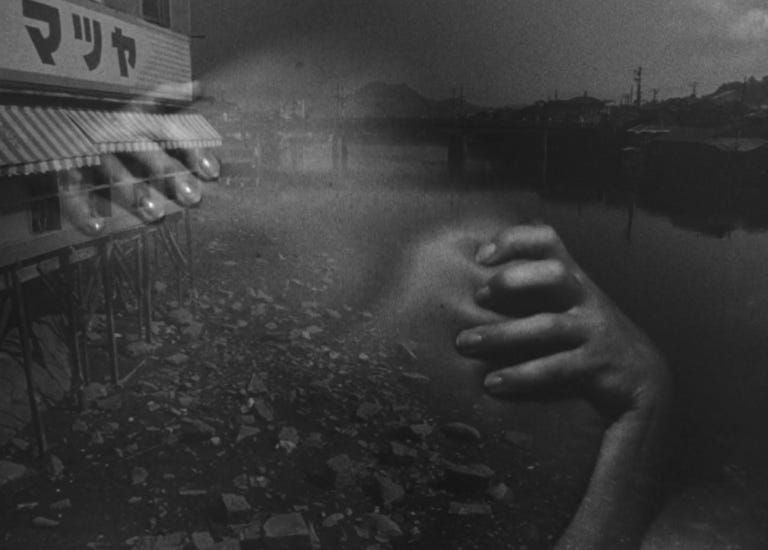It Will Begin Again
On Gaza, mourning, and memory's impossibility.
It may be the most inconsequential example of collective enlightenment in recorded memory. Over the past few weeks, the political establishment and mainstream media seem to have grown a heart for Gaza, or at least for Gazans. More liberals, including in Israel, are acknowledging the unfolding mass starvation – wholly engineered by the Israeli state – as an act of genocide. France and the United Kingdom are willing to recognize a Palestinian state. The world watches, the world declares its horror.
And what changes? Next to nothing. The west’s most powerful governments – including those now waxing diplomatic – are still in practice supporting Israel, still sending it arms, still pleading ignorance when members of its government openly declare their intent to cleanse the whole of Gaza. If most of the world acknowledges mass murder, and that mass murder is allowed to continue, can we credibly speak of democracy?
It goes to prove, yet again, what many of us have progressively realized over the past decade, what history shows us time and time again. Horror is not enough. Shame is not enough. Morality is not enough. Protest? Only if it manages to fully stop the everyday in its tracks.
Grief is also not enough. In fact, as PE Moskowitz argues, the urge to grieve while the crime is ongoing may reinforce a certain resignation, powerlessness in the face of calamity, not just now but in the future too. “How can one grieve those who are not even yet known dead?” they write. “One can only do so if those people have already been killed in our heads.”
The viabilities of life and respect for it are deliberately made slippery here. Those who are already dead were never fully alive. Those who we grieve now, quickly, have their memory defanged.
But then, this is how the (post-)(post?)modern empire stunts our psyches. Any sympathy for the colonized has also had to break through twenty-five years of War on Terror monstering, decades of Orientalist racism, and a few centuries of imperial mistrust. At the end of history, it is these divisions that are somehow real, while empathy, love, and solidarity are shifty and untrustworthy.
Mass atrocities, some insist, are essentially unknowable, beyond comprehension. Others have argued that making them exceptional also makes them repeatable. We’ve been proven right. And as a result we are now faced with what feels incomprehensible.
Not that we cannot grasp who made it happen. Famines, as Brecht reminds us, never simply happen. They are perpetrated. But how they can be conceived in the first place, how one set of humans can even countenance carrying this out against another; this is what avoids comprehension. It is the self-fulfilling prophecy of the amnesiac, and it has a sick sense of humor.
War and its aftermaths were a major preoccupation in the work of Alain Resnais. Form-wise, he returned again and again to the fractured narrative, the shards of events that can never be wholly reassembled. In other words, he fit right in among the French New Wave: Jean-Luc Godard, Anges Varda, Chris Marker, Marguerite Duras. Resnais worked with all of them at one time or another, and shared with them a certain sensibility that the everyday could be a prison.
His first full-length feature film, 1959’s Hiroshima, Mon Amour, was written by Duras. Two lovers, a French woman and a Japanese man, return to each other in Hiroshima. He is an architect, while she is in town to shoot a film on the subject of peace.
The two have much to hide from each other, and anyway both of them are happily married, though they occasionally indulge in extramarital affairs. She never wants to return to her home, the French city of Nevers. He can only return to a Hiroshima that has been rebuilt on the ruins of a city where his whole family died in the bombing. She, meanwhile, wishes she could forget that she fell in love with a German soldier during the war, and that after her neighbors found out they killed him and tortured her, driving her to madness. (That her lover may have been a supporter of the Nazis is never mentioned, nor is it really the film’s point.)
Life continues, much as they hate the idea. And it continues in such a way that the two cannot fully connect. Every embrace is ash. For twenty straight minutes in the film, they silently wander the streets of Hiroshima together, him following ten feet behind her, she never turning to see him. Only at the film’s end do they admit to themselves that their traumas, their grief, and their desires will have to breathe the same air.
“It will begin again,” she says to him. “200,000 dead and 80,000 wounded in nine seconds. Those are the official figures. It will begin again. It will be 10,000 degrees on the earth. Ten thousand suns, people will say. The asphalt will burn. Chaos will prevail. An entire city will be lifted off the ground, and fall back to earth in ashes…I meet you. I remember you. Who are you? You’re destroying me. You’re good for me.”
What is Hiroshima, Mon Amour about? Artists, scholars, and film aficionados have discussed it for sixty-five years. Is it about love? War? The contrast between the two? The ability of east and west to face each other as equals? Human commonality beyond borders?
Yes and no. All of the above. None of it. More than anything, it is an attempt to grapple with history’s apparent impossibilities. Just as it is impossible to square the loss of her lover with the loss of 140,000 people in the wake of the bombing. Just as it is impossible to square the message of a film with mass starvation in Palestine.
This isn’t to say everything is inevitable. Just that the most intimately human can be as confusing and as overwhelming as the grandest historical event. In some ways, the latter is impossible without the former. Maybe, when we actually grasp the full truth of this, we won’t have another Hiroshima or Gaza to fear.
Header photo is a still from Hiroshima, Mon Amour (1959).
Worms of the Senses
Seeing:
Intruder in the Dust, directed by Clarence Brown, screenplay by Ben Maddow (1949)
La Jetée, written and directed by Chris Marker (1962)
Herbert’s Hippopotamus, written and directed by Paul Alexander Juutilainen (1996)
Odds Against Tomorrow, directed by Robert Wise, screenplay by Abraham Polonsky (1959)
Hearing:
Black Moth Super Rainbow, Soft New Dream Magic (2025)
The New Eves, The New Eve is Rising (2025)
RJD2, Deadringer (2002)
Black Sabbath, Paranoid (of course, 1970)
Wet Leg, Moisturizer (2025)
Reading:
Gothic Capitalism: Art Evicted From Heaven and Earth, by Adam Turl (2025)
Anti-Fascism and the Avant-Garde, by Julia Alekseyeva (2025)
Ways of Hearing, by Damon Krukowski (2019)
How To Be a Revolutionary, by C.A. David (2022)




